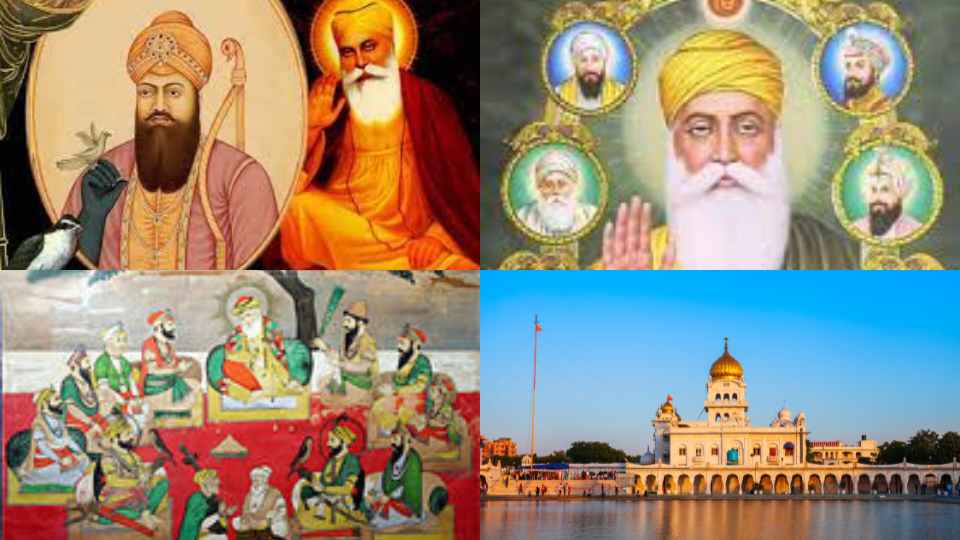Sikh Gurus

Sikhism has ten Gurus, or spiritual leaders, who played a key role in shaping the religion and its teachings. The Gurus were instrumental in establishing the Sikh community and providing guidance to its followers. Here is a brief overview of each of the ten Sikh Gurus:
- Guru Nanak (1469-1539): He was the founder of Sikhism and the first of the ten Gurus. He taught that there is only one God and that all people are equal. He also stressed the importance of living a moral and ethical life.
- Guru Angad (1504-1552): He was the second Guru of Sikhism and was chosen by Guru Nanak to be his successor. He is known for promoting the use of the Punjabi language and creating the Gurmukhi script.
- Guru Amar Das (1479-1574): He was the third Guru of Sikhism and is known for instituting the system of Manji, or administrative units, in the Sikh community.
- Guru Ram Das (1534-1581): He was the fourth Guru of Sikhism and is known for founding the city of Amritsar, which became the spiritual center of Sikhism.
- Guru Arjan (1563-1606): He was the fifth Guru of Sikhism and is known for compiling the first version of the Sikh holy book, the Guru Granth Sahib. He was also the first Sikh Guru to be martyred.
- Guru Hargobind (1595-1644): He was the sixth Guru of Sikhism and is known for militarizing the Sikh community in response to the persecution of Sikhs by the Mughal Empire.
- Guru Har Rai (1630-1661): He was the seventh Guru of Sikhism and is known for his efforts to promote peace and understanding between different religions.
- Guru Har Krishan (1656-1664): He was the eighth Guru of Sikhism and is known for his compassion towards those suffering from smallpox during an epidemic in Delhi.
- Guru Tegh Bahadur (1621-1675): He was the ninth Guru of Sikhism and is known for his martyrdom in defense of religious freedom, as he was executed by the Mughal Empire for refusing to convert to Islam.
- Guru Gobind Singh (1666-1708): He was the tenth and final Guru of Sikhism and is known for founding the Khalsa, a community of baptized Sikhs who follow a strict code of conduct. He also compiled the final version of the Guru Granth Sahib and is known for his military leadership in defending the Sikh community against the Mughal Empire.
Other Related Links

